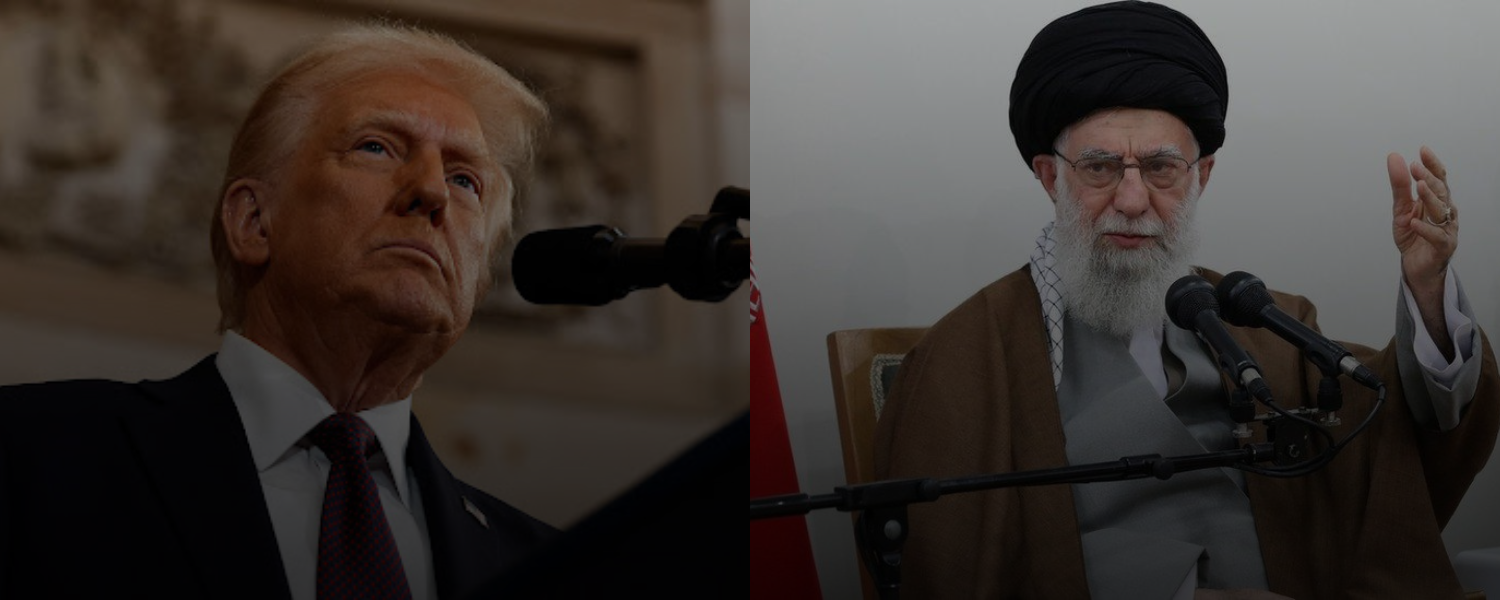Economic Peace in the
Middle East:
Why It Works—and Why Negotiating
with Iran Won’t
As champions of a secure and prosperous Middle East, we at The Zionist Beacon are committed to unpacking the strategies that bring stability to this volatile region—and those that don’t. Today, we’re diving into a critical issue: why economic peacebuilding, like the kind we’ve seen through Trump’s Abraham Accords, is a proven path to regional harmony, and why negotiating with Iran is a dangerous dead end. With tensions rising and Iran’s nuclear clock ticking, the stakes couldn’t be higher. Let’s break it down.
Trump’s Economic Peacebuilding: A Proven Strategy
We’ve seen firsthand how Trump’s Middle East strategy, centered on economic incentives, has reshaped the region for the better. The Abraham Accords, a cornerstone of his approach, have normalized relations between Israel and Gulf states like the UAE and Bahrain. This isn’t just diplomacy—it’s a game-changer. Israel’s thriving economy has opened doors for trade, investment, and tech cooperation, proving that prosperity can pave the way for peace. By focusing on shared economic benefits, the Accords have reduced tensions and built a foundation for lasting stability.
Expanding the Abraham Accords: Saudi Arabia’s Potential Role
Building on this success, Trump is now pushing Saudi Arabia to join the Abraham Accords. His recent Middle East trip secured a staggering $600 billion investment, a move that strengthens regional economies and U.S. ties. But let’s be clear: Saudi Arabia is hesitant because of the ongoing conflict and the Palestinian issue.
The Futility of Negotiating with Iran
While economic peace works with Gulf states, negotiating with Iran is a mistake we can’t afford to keep making. Iran’s regime is fundamentally hostile to Israel and the West. Every attempt at diplomacy has only emboldened their nuclear ambitions and funded their destabilizing activities across the region. Iran’s history of bad faith shows they can’t be trusted. We’re wasting precious time while Iran stalls and advances its nuclear program, now weeks away from weapons-grade uranium. The IAEA’s February 2024 estimate is even more alarming: Iran could produce material for seven nuclear weapons in a single month.
The Urgent Case for Military Action
Let’s face the facts: Iran’s nuclear program is a ticking time bomb. With their proxies weakened by recent conflicts and their defenses damaged, now is the moment for decisive action. We’re calling for preemptive strikes on Iran’s nuclear sites to prevent a catastrophe. Waiting any longer risks Iran securing a nuclear arsenal and fortifying their sites with advanced defenses, making future action far more difficult. The window is closing—fast.
Preventing a Regional Arms Race
A nuclear Iran wouldn’t just threaten Israel; it would ignite a regional arms race. Saudi Arabia, Turkey, and others would rush to develop their own weapons, unraveling Middle East stability and global nonproliferation norms. Preemptive strikes could delay or dismantle Iran’s program, giving us a chance to preserve the region’s balance.
Balancing Economic Diplomacy with Hard Security Measures
We applaud Trump’s economic normalization with Gulf states—it’s a strategy that works. But we’re baffled by his expectations of an Iran deal. Iran is playing us, stalling while their centrifuges spin. Diplomacy with Tehran isn’t the answer; military action is. We need to balance the economic carrots that have brought the UAE and Bahrain to the table with the hard security measures required to stop Iran in its tracks.
A Path Forward
The Middle East stands at a crossroads. Economic peace through the Abraham Accords has shown us what’s possible when nations prioritize prosperity over conflict. But Iran’s nuclear ambitions threaten to undo it all. We can’t afford to be naive. It’s time to act decisively—supporting economic integration with our allies while taking the necessary steps to ensure a nuclear-armed Iran never becomes a reality. The future of the region depends on it.
There’s a clear divide within the Trump administration regarding foreign policy. While Trump should seek input from Hegseth and Rubio, he might be leaning more towards Witkoff and others. Ultimately, the only effective approach is achieving TRUE peace through strength. What are your thoughts on this approach? Should we prioritize economic peace while taking a more assertive stance with Iran?
